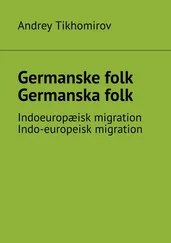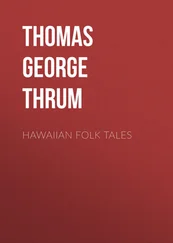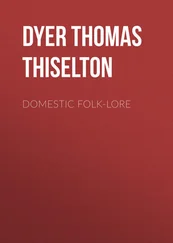Thomas Dyer - Folk-lore of Shakespeare
Здесь есть возможность читать онлайн «Thomas Dyer - Folk-lore of Shakespeare» — ознакомительный отрывок электронной книги совершенно бесплатно, а после прочтения отрывка купить полную версию. В некоторых случаях можно слушать аудио, скачать через торрент в формате fb2 и присутствует краткое содержание. Жанр: foreign_antique, foreign_prose, на английском языке. Описание произведения, (предисловие) а так же отзывы посетителей доступны на портале библиотеки ЛибКат.
- Название:Folk-lore of Shakespeare
- Автор:
- Жанр:
- Год:неизвестен
- ISBN:нет данных
- Рейтинг книги:4 / 5. Голосов: 1
-
Избранное:Добавить в избранное
- Отзывы:
-
Ваша оценка:
- 80
- 1
- 2
- 3
- 4
- 5
Folk-lore of Shakespeare: краткое содержание, описание и аннотация
Предлагаем к чтению аннотацию, описание, краткое содержание или предисловие (зависит от того, что написал сам автор книги «Folk-lore of Shakespeare»). Если вы не нашли необходимую информацию о книге — напишите в комментариях, мы постараемся отыскать её.
Folk-lore of Shakespeare — читать онлайн ознакомительный отрывок
Ниже представлен текст книги, разбитый по страницам. Система сохранения места последней прочитанной страницы, позволяет с удобством читать онлайн бесплатно книгу «Folk-lore of Shakespeare», без необходимости каждый раз заново искать на чём Вы остановились. Поставьте закладку, и сможете в любой момент перейти на страницу, на которой закончили чтение.
Интервал:
Закладка:
Mahomet, we are told, had a dove, which he used to feed with wheat out of his ear; when hungry, the dove lighted on his shoulder, and thrust its bill in to find its breakfast, Mahomet persuading the rude and simple Arabians that it was the Holy Ghost, that gave him advice. 201 201 Sir W. Raleigh’s “History of the World,” bk. i. pt. i. ch. 6.
Hence, in “1 Henry VI.” (i. 2), the question is asked:
“Was Mahomet inspired with a dove?”
Duck. A barbarous pastime in Shakespeare’s time was hunting a tame duck in the water with spaniels. For the performance of this amusement 202 202 Strutt’s “Sports and Pastimes,” 1876, p. 329.
it was necessary to have recourse to a pond of water sufficiently extensive to give the duck plenty of room for making its escape from the dogs when closely pursued, which it did by diving as often as any of them came near it, hence the following allusion in “Henry V.” (ii. 3):
“And hold-fast is the only dog, my duck.” 203 203 There is an allusion to the proverbial saying, “Brag is a good dog, but Hold-fast is a better.”
“To swim like a duck” is a common proverb, which occurs in “The Tempest” (ii. 2), where Trinculo, in reply to Stephano’s question how he escaped, says: “Swam ashore, man, like a duck; I can swim like a duck, I’ll be sworn.”
Eagle. From the earliest time this bird has been associated with numerous popular fancies and superstitions, many of which have not escaped the notice of Shakespeare. A notion of very great antiquity attributes to it the power of gazing at the sun undazzled, to which Spenser, in his “Hymn of Heavenly Beauty” refers:
“And like the native brood of eagle’s kind,
On that bright sun of glory fix thine eyes.”
In “Love’s Labour’s Lost” (iv. 3) Biron says of Rosaline:
“What peremptory eagle-sighted eye
Dares look upon the heaven of her brow,
That is not blinded by her majesty?” 204 204 In the same scene we are told, “A lover’s eyes will gaze an eagle blind.” Cf. “Romeo and Juliet,” iii. 5; “Richard II.,” iii. 3.
And in “3 Henry VI.” (ii. 1) Richard says to his brother Edward:
“Nay, if thou be that princely eagle’s bird,
Show thy descent by gazing ’gainst the sun.”
The French naturalist, Lacepede, 205 205 Quoted by Harting, in “Ornithology of Shakespeare,” p. 24.
has calculated that the clearness of vision in birds is nine times more extensive than that of the farthest-sighted man. The eagle, too, has always been proverbial for its great power of flight, and on this account has had assigned to it the sovereignty of the feathered race. Aristotle and Pliny both record the legend of the wren disputing for the crown, a tradition which is still found in Ireland: 206 206 Kelly’s “Indo-European Folk-Lore,” pp. 75, 79.
“The birds all met together one day, and settled among themselves that whichever of them could fly highest was to be the king of them all. Well, just as they were starting, the little rogue of a wren perched itself on the eagle’s tail. So they flew and flew ever so high, till the eagle was miles above all the rest, and could not fly another stroke, for he was so tired. Then says he, ‘I’m the king of the birds,’ says he; ‘hurroo!’ ‘You lie,’ says the wren, darting up a perch and a half above the big fellow. The eagle was so angry to think how he was outwitted by the wren, that when the latter was coming down he gave him a stroke of his wing, and from that day the wren has never been able to fly higher than a hawthorn bush.” The swiftness of the eagle’s flight is spoken of in “Timon of Athens,” (i. 1):
“an eagle flight, bold, and forth on,
Leaving no tract behind.” 207 207 Cf. “Antony and Cleopatra,” ii. 2: “This was but as a fly by an eagle.”
The great age, too, of the eagle is well known; and the words of the Psalmist are familiar to most readers:
“His youth shall be renewed like the eagle’s.”
Apemantus, however, asks of Timon (“Timon of Athens,” iv. 3):
“will these moss’d trees,
That have outlived the eagle, page thy heels,
And skip when thou point’st out?”
Turbervile, in his “Booke of Falconrie,” 1575, says that the great age of this bird has been ascertained from the circumstance of its always building its eyrie or nest in the same place. The Romans considered the eagle a bird of good omen, and its presence in time of battle was supposed to foretell victory. Thus, in “Julius Cæsar” (v. 1) we read:
“Coming from Sardis, on our former ensign
Two mighty eagles fell; and there they perch’d,
Gorging and feeding from our soldiers’ hands.”
It was selected for the Roman legionary standard, 208 208 Josephus, “De Bello Judico,” iii. 5.
through being the king and most powerful of all birds. As a bird of good omen it is mentioned also in “Cymbeline” (i. 1):
“I chose an eagle,
And did avoid a puttock;”
and in another scene (iv. 2) the Soothsayer relates how
“Last night the very gods show’d me a vision,
… thus: —
I saw Jove’s bird, the Roman eagle, wing’d
From the spungy south to this part of the west,
There vanish’d in the sunbeams: which portends
(Unless my sins abuse my divination),
Success to the Roman host.”
The conscious superiority 209 209 Harting’s “Ornithology of Shakespeare,” p. 33.
of the eagle is depicted by Tamora in “Titus Andronicus” (iv. 4):
“The eagle suffers little birds to sing,
And is not careful what they mean thereby,
Knowing that with the shadow of his wing,
He can at pleasure stint their melody.”
Goose. This bird was the subject 210 210 Nares’s “Glossary,” vol. i. p. 378.
of many quaint proverbial phrases often used in the old popular writers. Thus, a tailor’s goose was a jocular name for his pressing-iron, probably from its being often roasting before the fire, an allusion to which occurs in “Macbeth” (ii. 3): “come in, tailor; here you may roast your goose.” The “wild-goose chase,” which is mentioned in “Romeo and Juliet” (ii. 4) – “Nay, if thy wits run the wild-goose chase, I have done” – was a kind of horse-race, which resembled the flight of wild geese. Two horses were started together, and whichever rider could get the lead, the other was obliged to follow him over whatever ground the foremost jockey chose to go. That horse which could distance the other won the race. This reckless sport is mentioned by Burton, in his “Anatomy of Melancholy,” as a recreation much in vogue in his time among gentlemen. The term “Winchester goose” was a cant phrase for a certain venereal disease, because the stews in Southwark were under the jurisdiction of the Bishop of Winchester, to whom Gloster tauntingly applies the term in the following passage (“1 Henry VI.,” i. 3):
“Winchester goose! I cry – a rope! a rope!”
In “Troilus and Cressida” (v. 10) there is a further allusion:
“Some galled goose of Winchester would hiss.”
Ben Jonson 211 211 “Execration against Vulcan,” 1640, p. 37.
calls it:
“the Winchestrian goose,
Bred on the banke in time of Popery,
When Venus there maintain’d the mystery.”
Интервал:
Закладка:
Похожие книги на «Folk-lore of Shakespeare»
Представляем Вашему вниманию похожие книги на «Folk-lore of Shakespeare» списком для выбора. Мы отобрали схожую по названию и смыслу литературу в надежде предоставить читателям больше вариантов отыскать новые, интересные, ещё непрочитанные произведения.
Обсуждение, отзывы о книге «Folk-lore of Shakespeare» и просто собственные мнения читателей. Оставьте ваши комментарии, напишите, что Вы думаете о произведении, его смысле или главных героях. Укажите что конкретно понравилось, а что нет, и почему Вы так считаете.












